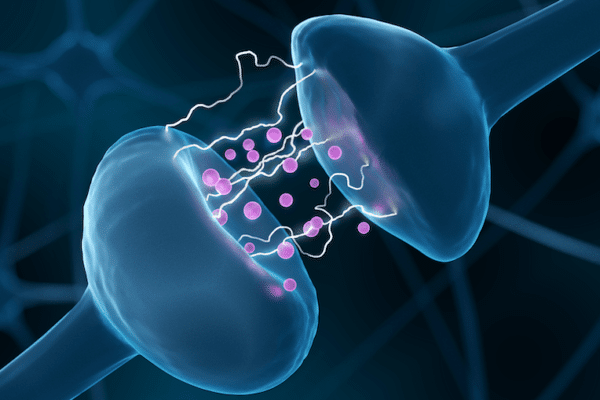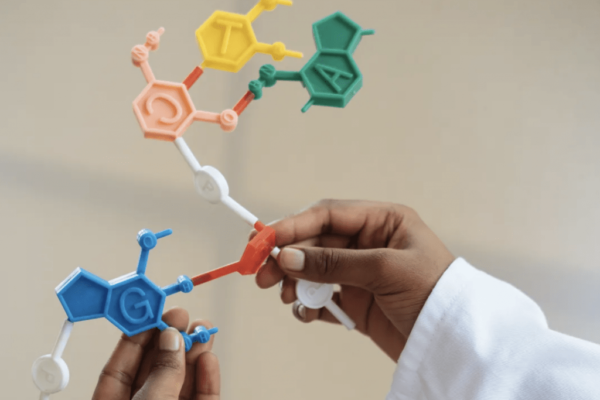Mindfulness and Recovery

By Justin Jackson, Licensed Professional Counselor at Master Center
Mindfulness is a term that is often misunderstood. When I teach mindfulness practices to my clients, they sometimes think they must meditate or practice yoga in order to be mindful. This is surely not the case. Simply put, mindfulness means paying attention, deliberately, to the present moment in a non-judgmental manner. Meditation, yoga, breathing exercises, creative expression/art, listening to music, eating, walking, and even doing the dishes can all be done in a mindful manner. Being mindful can help us let go of potential anxiety-provoking or depressive thoughts, in addition, to appropriately managing and responding to worries/fear about relapse.
Here are a few examples of mindfulness-based exercises:
- Mindfulness Meditation – Find a place where you can sit quietly and set a time for 10-15 minutes. Bring your attention to the present moment by noticing your breathing as it enters and leaves your body. Use this as your anchor. Anytime your thoughts wander away, bring it back to your breath. Observe your thoughts come and go like leaves on a stream. Do not judge it; accept what is happening. Return attention to your breathing.
- Guided Meditation – Feel free to search YouTube or the internet for different guided meditations. There are scripts for different purposes, such as sleep, concentration, anxiety, stress, etc.
- Counting breathing exercise – Breath in through your nose for 4 seconds, hold for 7 seconds, and exhale with a ‘whoosh’ sound for 8 seconds.
- Body Scan – Notice the physical sensations throughout your body as you scan from head to toe. Move slowly, up and down your body, and simply pay attention to what you are feeling.
- Five Senses – While engaging in any activity, whether it is walking, listening to music or simply sitting/laying on your bed, try to ground yourself in the present moment by focusing and using all five of your senses. What do you see? How does it feel? How does it sound? How does it taste? How does it smell? Use as many senses as possible within this exercise and fully immerse yourself in the experience. You may even want to put your favorite smelling candle and a comforting piece of fabric/blanket next to your bed and utilize these senses while listening to your favorite song.
In recovery, recognizing triggers, feelings of discomfort, cravings to use and how to utilize effective coping skills are critical for long-term abstinence. Practicing mindfulness on a consistent basis in recovery allows one to raise awareness of triggers and responses, leading to a disruption in what was previously deemed as automatic behavior (drug use) in active addiction.
Mindfulness encourages us to view negative thoughts and feelings that previously led to drug use (e.g.: “I am unlovable”; “I feel unworthy”; “I am not good enough”; “No one understands me so what’s the point?”; “My back pain hasn’t improved in years”) with acceptance versus self-blame and doubt. When we can learn to accept the present moment, despite its uncomfortable nature, and respond to such triggers without judgment, we are being mindful in our recovery.
Moreover, engaging in a mindfulness-based activity, even if it is a quick counting breathing exercise (breathing in through the nose for 4 seconds, hold for 7 seconds, and exhale through the mouth for 8 seconds), is a beneficial way to productively turn our attention away from a craving. Ultimately, being mindful allows us to become more in tune, attentive, and nonjudgmental to our thoughts, emotions, and overall experience in the world and enhances our ability to perceive stress, anxiety, and triggers to use our drug of choice (or behavior of choice) in a more adaptive, less compulsive manner.
Along with improved insight and self-awareness, mindfulness practices have been shown to change our brain’s chemistry, physical health, and psychological well-being. In active addiction, we know that our drug or behavior of choice has rewired how our brains tell us to survive – use, use, use. Part of our executive functioning also learned how to operate in an abnormal manner that favored impulsivity and pleasure-seeking. Through the continuous use of a substance or engaging in a behavior despite negative consequences, we taught our brains to act and seek out behaviors that were against our own best interests. The good news is that the brain is remarkably plastic – meaning it does not harden like concrete after a certain period of development. In recovery, we can teach our brains healthy skills to develop a new way of thinking, feeling, and doing.
The physical and mental health benefits of mindfulness are well-documented in research. These practices have been shown to change brain structure, function, and connectivity; increase attentional control; improve physical health and immune function; increase self-regulation of emotional reactions; and a reduction in perceived stress. Specifically, Harvard-affiliated researchers at Massachusetts General Hospital found that after an eight-week mindfulness meditation program, there were measurable changes in the regions of the brain associated with learning and memory, emotional regulation, compassion, introspection, sense of self, empathy, anxiety and stress, and perspective-taking (Hölzel et al. 2011). Research has also suggested that mindfulness training can enhance pleasurable experiences and positive emotions because it teaches us how to focus on natural rewards and the present moment (Priddy et al. 2018). In fact, one meta-analysis found that mindfulness-based interventions in the treatment of substance use disorders show clinical promise in increasing some specific therapeutic outcomes, such as duration of abstinence, reduction in perceived cravings and negative affect, and a decrease in post-traumatic stress symptoms (Cavicchioli et al. 2018). These authors emphasize that more research is needed, however.
Although the aforementioned information is not nearly as exhaustive as it could be, hopefully, it provides you with some insight regarding the benefits of mindfulness in general, and more specifically in recovery. I will be the first to admit that I sometimes struggle with the tips that I want to share with you below. Carving out time to engage in mindfulness is not as impossible as it may seem; it may just require minor adjustments to your existing schedule, such as waking up 20 minutes earlier or heading to the bedroom 20 minutes earlier. Maintaining a routine is often difficult for me; one of the helpful tools I have found is to keep things fresh by mixing up the types of mindfulness activities I am participating in. There is an app called “Calm” on the Apple Store and Google Play Store that I recommend for anyone starting out in mindfulness meditation exercises. Mindfulness may not be for everyone, but it’s worth a shot, right? Give it a go!
For those that want to start engaging in mindfulness activities, here are a few tips:
Tips:
- Time and practice – Whether we are bored, unmotivated, or simply busy, setting aside 10-20 minutes per day for mindfulness practice is crucial. As with any learned behavior or skill, practice is your best friend when it comes to mindfulness-based activities.
- Maintain a Routine – Any form of behavioral change is difficult to maintain. Just like entering treatment and recovery (or starting a diet or exercise regimen), it can be helpful to establish a form of structure or motivational tools that will help you maintain a routine for mindfulness exercises.
- Wandering Thoughts – This may be the most challenging obstacle to overcome when engaging in mindfulness practices. We cannot predict the thoughts that come into our mind, but we have the ability to control how we respond to them. It is common for our minds to wander away from what it is we want to focus on. If you are practicing yoga, Pilates, meditation, guided imagery, or mindful walking and find your thoughts drifting into intrusive and unwanted territory, simply accept what is occurring without judgment and bring your attention back to the activity at hand.
- Ask for help/Do your own Research: Seek out resources for a more immersive experience. If you are a beginner, I find it helpful to start with guided activities, such as guided imagery, guided meditation, or guided breathing exercises. Many scripts and tools to help walk you through these practices can be found online or on YouTube. You may even want to try registering for mindfulness classes that teach and guide you through a variety of different exercises.
Justin Jackson is a Licensed Professional Counselor at Master Center. He is also a Licensed Substance Abuse Treatment Practitioner, National Certified Counselor, and is certified in Dialectical Behavioral Therapy. To learn more about Justin as well as our other leaders in addiction medicine, visit www.mastercenter.com. To schedule an appointment call 804.332.5950 or contact us at www.mastercenter.com.
—
References
Cavicchioli, M., Movalli, M., & Maffei, C. (2018). The Clinical Efficacy of Mindfulness-Based Treatments for Alcohol and Drugs Use Disorders: A Meta-Analytic Review of Randomized and Nonrandomized Controlled Trials. European Addiction Research, 24(3), 137–162. https://doi.org/10.1159/000490762
Davidson R.J., Kabat-Zinn J., Schumacher J., Rosenkranz M., Muller D., Santorelli S.F., Urbanowski F., Harrington A., Bonus K., Sheridan J.F. (2003). Alterations in brain and immune function produced by mindfulness meditation. Psychosom Med. Jul-Aug;65(4):564-70.
Hölzel, B. K., Carmody, J., Vangel, M., Congleton, C., Yerramsetti, S. M., Gard, T., & Lazar, S. W. (2011). Mindfulness practice leads to increases in regional brain gray matter density. Psychiatry Research: Neuroimaging, 191(1), 36–43. https://doi.org/10.1016/j.pscychresns.2010.08.006
Priddy, S. E., Howard, M. O., Hanley, A. W., Riquino, M. R., Friberg-Felsted, K., & Garland, E. L. (2018). Mindfulness meditation in the treatment of substance use disorders and preventing future relapse: neurocognitive mechanisms and clinical implications. Substance Abuse and Rehabilitation, Volume 9, 103–114. https://doi.org/10.2147/sar.s145201
Tips for Mindfulness in Recovery from Addiction | Sober College. (2017, August 7). Sober College. https://sobercollege.com/addiction-blog/mindfulness-recovery-addiction/


